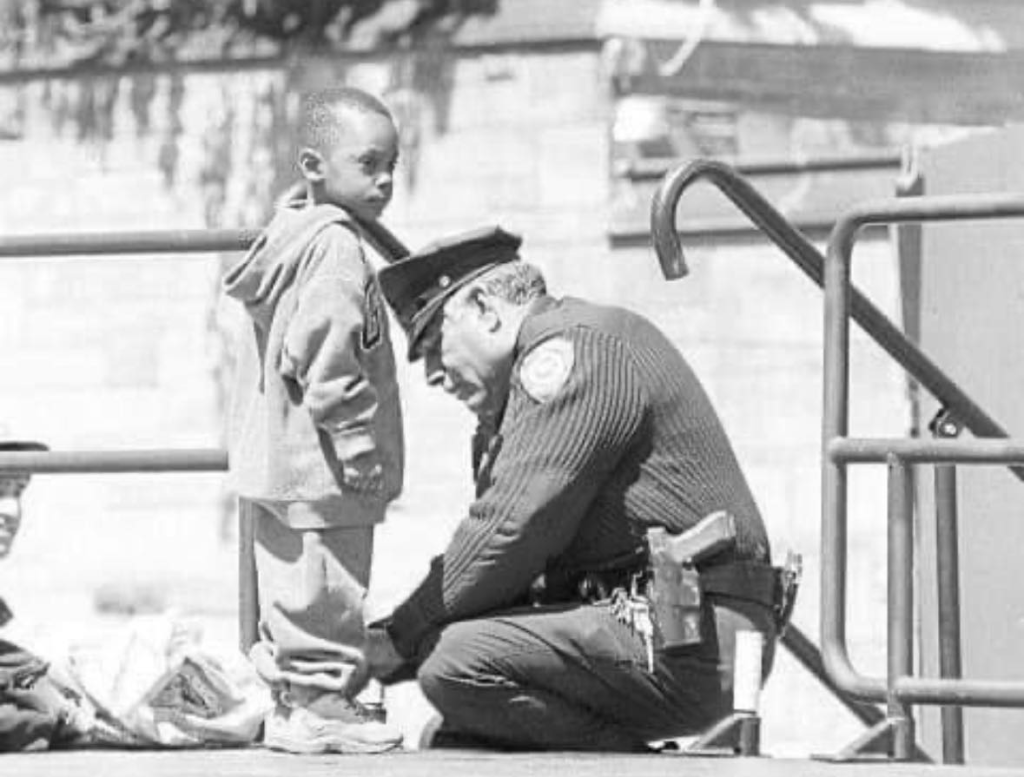Officer Daniels (names changed for privacy) arrived at Brightwood Elementary on a crisp Tuesday morning, summoned to take a report of vandalism. The walls of a side classroom had been defaced with graffiti overnight. Broken branch from a tree had smashed a window. It was the kind of case he’d handled before, part of the ordinary routine of policing — paperwork, witnesses, photos, follow-ups.
He took notes, moved through the classroom, asked the custodian, the teacher, and the principal what they saw. Outside, students milled about in recess, laughter and chatter filling the air. For the children, it was just another day at school; for Officer Daniels, it was another duty.
Then a little boy, no more than six years old, walked up. He had blond curls, bright eyes, dirt smudged on his knees from play, and he stopped right beside the officer. The boy looked the uniform up and down — the polished badge, the shiny buttons, the holster at the belt. There was a serious, curious weight in his stare.
“Are you a cop?” the boy asked.

“Yes,” answered Officer Daniels. He paused for a moment, putting down his pen. The air carried the hum of distant playground swings, the murmur of distant voices, children’s sneakers against pavement.
The boy nodded, as if he’d been waiting for that confirmation. He shuffled his feet. Then, with a delicate shift, he extended one foot, pointing at his untied shoe.
“My mother said if I ever needed help I should ask the police. Is that right?”
“Yes, that’s right,” Officer Daniels replied, kneeling down to his level.
It was in that moment the routine paperwork and vandalism report receded. It wasn’t about broken windows or defaced walls. It was about trust, about the bond between a community and those sworn to protect it. Without sirens, without threat, without expectation.
The boy smiled. Officer Daniels stooped, tied the laces. It took perhaps ten seconds. But by the time he was up again, something had shifted.
He finished his report. But now, his work felt more than procedural. He felt seen — as a helper, not just an enforcer. The boy ran off, back to classmates, to laughter and sunshine.
Later, walking back to his patrol car, Officer Daniels paused. He reflected on what trust looked like to a child. How small acts — a uniform, a question, kindness — matter. He thought of the mother who taught her child to believe in asking for help. He thought of how easy it is to jadedly assume children are invisible in serious work. And yet, here one had reminded him why he became a police officer.